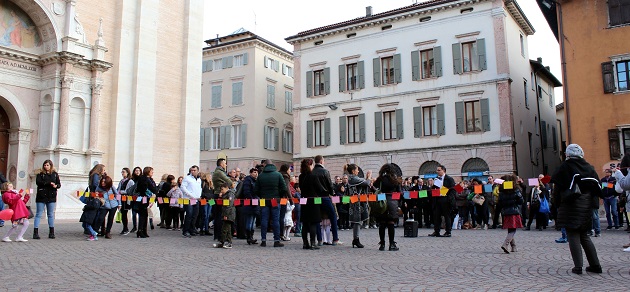From Wittenberg 1517 to Trent 2017
Evangelical Reformed Baptist Churches gathered in Trent to express their commitment to Protestant values. Evangelicals celebrate Reformation in Rome’s Martin Luther Square.
ROME · 01 NOVEMBER 2017 · 14:00 CET

Two days before the 500th anniversary of Luther’s 95 theses displayed on Wittemberg’s Cathedral door, the Evangelical Reformed Baptist Churches in Italy gathered in Trent, the city emblematic of the Council and the Catholic Counter-Reformation.
As highly symbolic as the location could be, this annual CERBI gathering aimed at reaffirming how topical the Protestant Reformation is and how committed must God’s people be in keeping faith to the biblical truths that brought the XVI century reformers to take such a clear stand. The almost 400 people taking part to the service rose to Habakkuk’s challenge (3:2) to listen to God’s Word, to fear Him and to commit to Him wholeheartedly, holistically and on the long run, as a real life choice.
In the afternoon, the participants were conducted on a tour of the key sites of the city ending their walk in Piazza di Santa Maria Maggiore, right in front of the church building.
On a long red thread held by several participants, a new set of theses was hung as a witness of the ongoing resolution to live and apply the principles of the Reformation within the present Italian context. In doing so, God’s faithful support to every stand taken for his Word during the whole of history was once more emphasized.
IN MARTIN LUTHER'S SQUARE IN ROME
The same day the CERBI churches of Central and Southern Italy gathered in Rome for a open air service in Martin Luther’s square, next to the Coliseum.
“Mighty Fortress is our God” was sung and significant texts taken from Luther’s writings were read publicly. Different people shared what it means for them to uphold the tenets of the Reformation: Christ Alone, Scripture Alone, Grace Alone, Faith Alone, to God Alone be the Glory.
Public prayers were elevated to God to bring about a time of biblical Reformation in a country that has sadly known the counter-reformation without knowing the Protestant Reformation. Churches were encouraged to be faithful witnesses of the gospel without blurring it for the sake of a diluted form of unity at the expense of the biblical truth that we are saved by grace alone through faith alone by Christ alone according to the Scriptures alone for the glory of God alone.
Published in: Evangelical Focus - cities - From Wittenberg 1517 to Trent 2017
